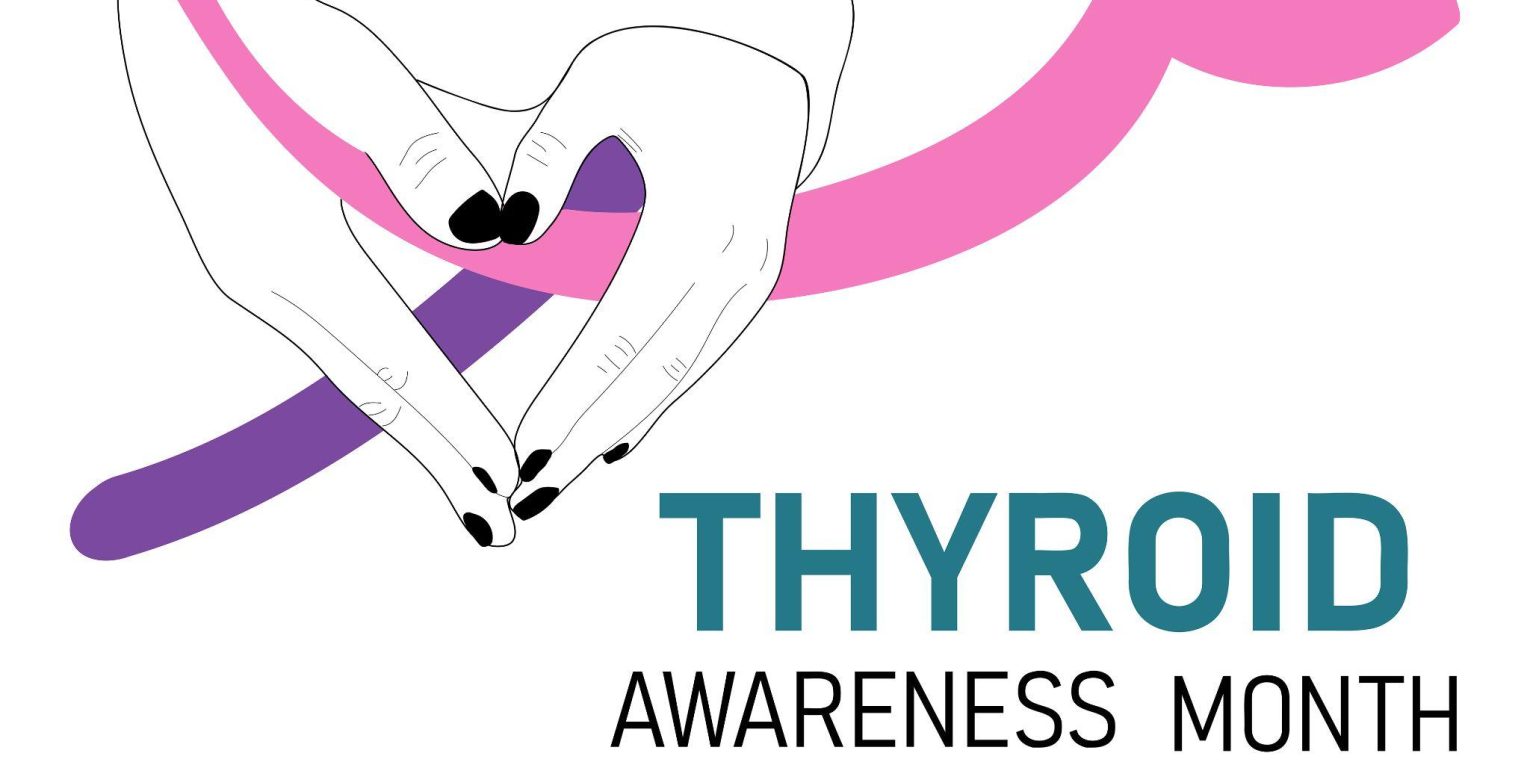Every year, January marks Thyroid Awareness Month. As we enter the New Year, January 2024, people come together to spread awareness about the health of the thyroid gland in our body. They do this by organising campaigns, educational programs, and other initiatives. Understanding thyroid health is essential because it can lead to various health issues if it’s not functioning correctly.
Thyroid Awareness Month is Important because –
- There is a lack of awareness about thyroid disease.
- Getting diagnosed early can result in receiving adequate treatment.
- Thyroid problems may not always display clear symptoms.
This month presents an excellent opportunity to expand our understanding of thyroid gland disorders and the significance of preventive healthcare. Early thyroid disease detection and proper management can help prevent these problems.
Facts about Thyroid disorders:
- Women experience more thyroid problems than men.
- Most thyroid problems are not preventable.
- Approximately one in 20 people will have thyroid dysfunction in their lifetime.
- Overactivity and underactivity of the thyroid gland are common issues.
- Undetected thyroid disease can lead to serious conditions like cardiovascular diseases, osteoporosis and infertility.
- Pregnant women should receive appropriate diagnosis and treatment for thyroid problems to avoid complications.
- Most thyroid diseases are long-standing and can be treated with proper medical attention.
- About 60–70% of middle-aged women have thyroid nodules, which are very common.
- The majority of thyroid cancers are treatable, but only a few can become extremely aggressive.
FAQ’s about thyroid gland:
1. What is a thyroid gland?
The thyroid gland is an endocrine gland placed just below the larynx, or Adam’s apple, situated in the front part of the neck. It consists of two lobes on either side of the windpipe (trachea), like a butterfly-like shape.

2.What are the functions of the thyroid gland?
The thyroid gland is a critical endocrine hormonal gland that profoundly affects the body’s growth, development, and metabolism. Its function is to release a consistent amount of thyroid hormones into the bloodstream, which helps to regulate many bodily functions. Whenever a person requires more energy, such as in growth, cold weather, or pregnancy, the thyroid gland produces more hormones to meet this demand.
3.Which hormones does the thyroid gland produce?
The thyroid gland secretes three hormones:
- Triiodothyronine, also known as T3
- Tetraiodothyronine, also called thyroxine or T4
- Calcitonin
The proper thyroid hormones are only T3 and T4 produced by the follicular epithelial cells of the thyroid. Calcitonin is produced by the parafollicular cells, or C-cells, of the thyroid gland.
4.What are the common thyroid gland problems?
The common thyroid gland disorders are:
- Hyperthyroidism
- Hypothyroidism
- Grave’s disease
- Autoimmune thyroiditis
- Thyroid adenoma
- Thyroid cancer
- Endemic goitre
5.What is hyperthyroidism?
An overactive thyroid, known as hyperthyroidism, is observed when the thyroid gland generates more thyroid hormones than the body needs.
6.What is hypothyroidism?
Hypothyroidism, or underactive thyroid, is observed when the thyroid gland produces insufficient thyroid hormones to fulfil the body’s needs.
7.What is the condition known as Graves’ disease?
Graves’ disease is the result of an autoimmune disorder leading to an overactive thyroid gland, known as hyperthyroidism. The immune system attacking healthy tissues is what causes an autoimmune disorder.
8.Which tests are used to diagnose thyroid conditions?
Two types of tests are used to diagnose thyroid conditions:
Blood tests:
- A thyroid function test consists of thyroid stimulating hormone (TSH), thyroxine (T4), and triiodothyronine (T3) blood tests.
- Thyroid antibodies test: It measures particular antibodies related to the thyroid. With this test, an autoimmune thyroid disease may be diagnosed.
Imaging tests include:
- CT scan
- Ultrasound scan
- Nuclear medicine tests, such as:
- Thyroid scan
- Radioactive iodine uptake test
 Ultrasound of thyroid gland
Ultrasound of thyroid gland
9.What is meant by thyroid cancer?
Cancer that is found in the thyroid gland is known as thyroid cancer.

10.What are the distinct types of thyroid cancer?
Thyroid cancer comes in four main types, they include:
- Papillary
- Follicular
- Medullary
- Anaplastic
Papillary is the most common type of thyroid cancer.
11.What signs and symptoms indicate thyroid cancer?
Thyroid cancer may not cause symptoms at an early stage. The symptoms are visible as the tumour gets bigger. It may be found during a routine physical exam or an X-ray or imaging scan done for other reasons.
The cause of a symptom can also be a medical condition that is not cancer, like other thyroid disorders or a condition that is not related to the thyroid gland. The symptoms may include:
- A lump in the front of the neck, near the Adam’s apple
- Hoarseness
- Swollen glands in the neck
- Difficulty swallowing
- Difficulty breathing
- Throat or neck pain
- Consistent cough that is not caused by a cold
12.How is thyroid cancer treated?
The following methods treat thyroid cancer:
- Surgery
- Radiation therapy, including radioactive iodine therapy
- Thyroid hormone therapy
- Targeted therapy
- Chemotherapy
- Watchful waiting
Surgery is the most common form of thyroid tumour treatment.
13.What are the preventive measures for thyroid cancer?
Some preventive measures for thyroid cancer include:
- Regular Self-Exams
- Safeguard your neck from radiation
- Eat a balanced diet
- Regular exercise
- Healthy weight
- Stay away from environmental toxins
- Genetic Counseling in case of family history
14.Can thyroid cancer come back (recur) after it has been treated?
Yes, cancer may recur in the thyroid or other body parts.
15.Which type of doctor should I consult for the treatment of thyroid cancer?
Consult oncologist for thyroid cancer treatment.

In conclusion, Thyroid Awareness Month in 2024 provides an opportunity to shed light on the importance of thyroid health and its impact on overall well-being. We can work towards a healthier and more informed community by promoting education, early detection, and support for those affected by thyroid disorders.
References:
https://www.cancer.net/cancer-types/thyroid-cancer/symptoms-and-signs
https://www.hopkinsmedicine.org/health/conditions-and-diseases/thyroid-cancer
https://www.cancer.gov/types/thyroid/patient/thyroid-treatment-pdq#_1
https://www.saintjohnscancer.org/blog/january-is-thyroid-awareness-month/

